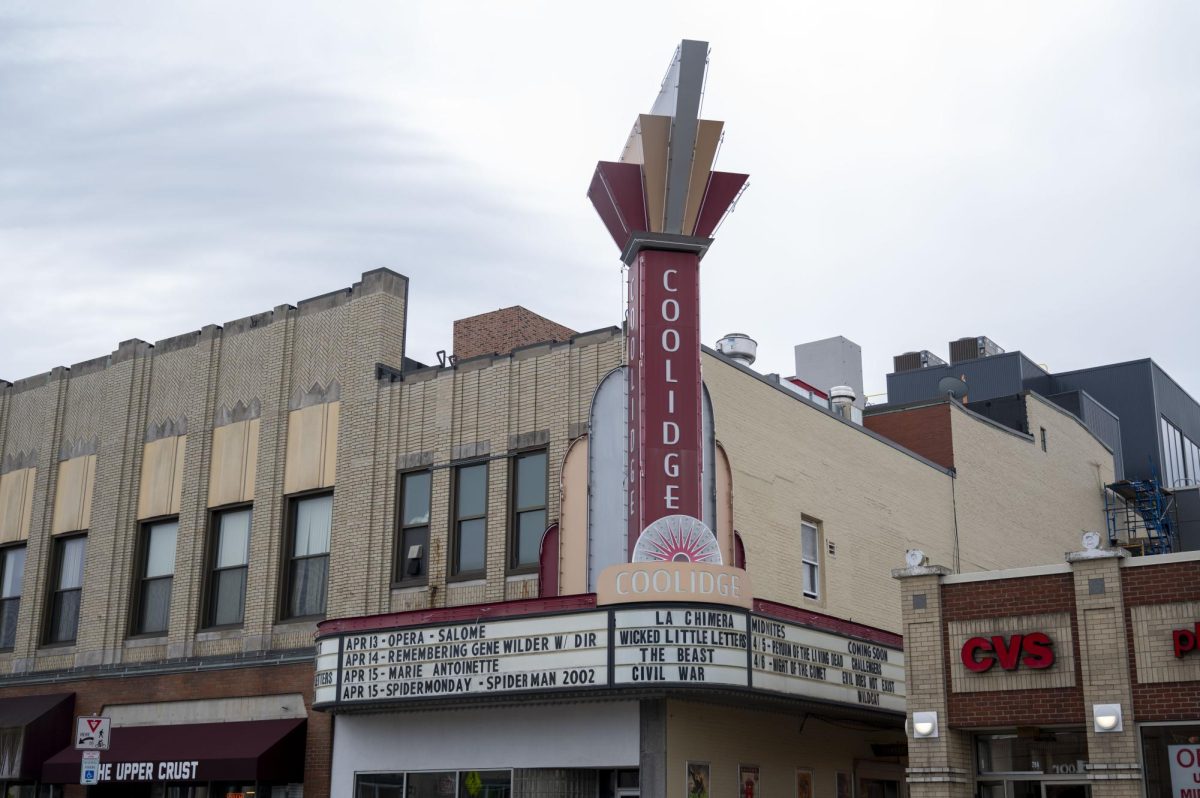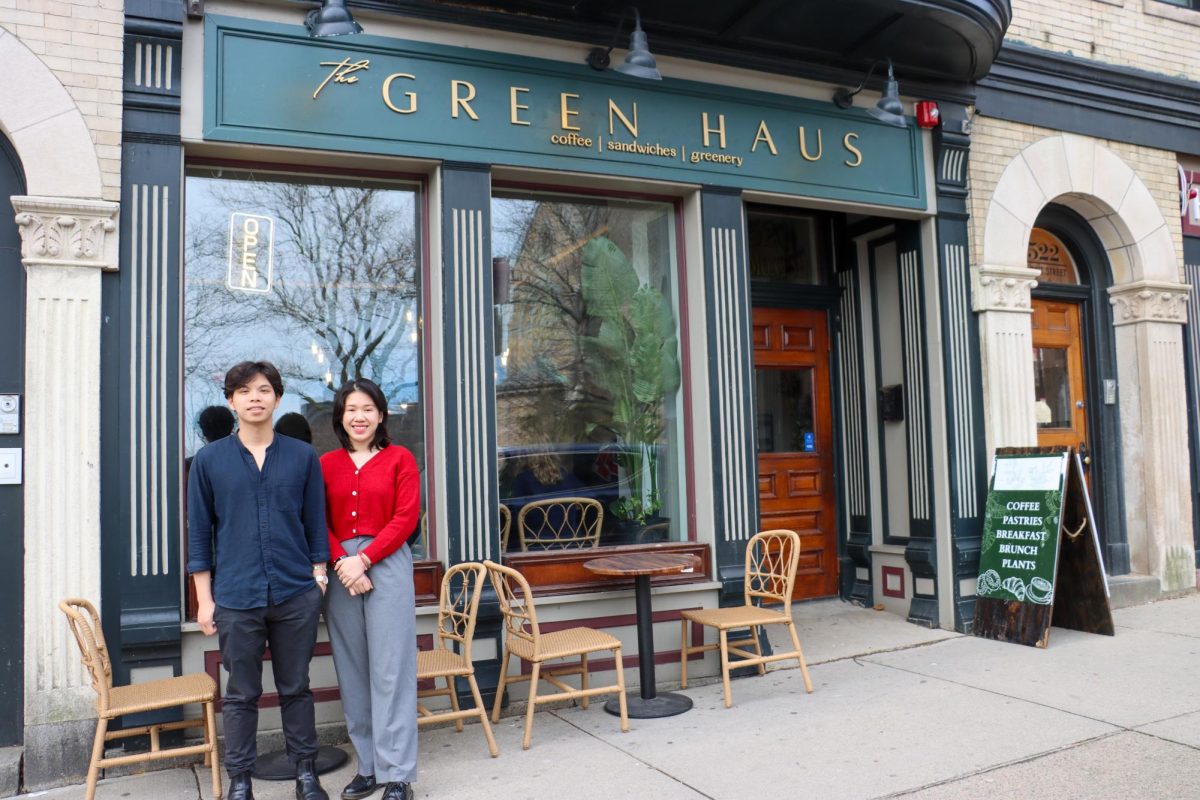By Emma McGrath, News Staff
With the school year winding down and summer just on the horizon, millions of college students and recent grads are vying for temporary positions that promise to provide them with valuable skills, bolstered résumés and no money whatsoever.
Facing a tough economic climate and an unforgiving job market, young, educated Americans are struggling to find paid work in their desired fields, so some of them are working full-time, without pay, in the hopes of gaining relevant experience.
This is the world of unpaid internships: a world where finding the right position can mean a steady job afterward, and where finding the wrong one can mean months of unrewarding servitude.
Some argue that job experience, unpaid or paid, gives students an invaluable competitive edge in the job market, and helps them to clarify their career goals in the process.
Supporters of unpaid internships say that they provide industry exposure, networking opportunities, and a “training wheels” atmosphere in which interns can learn the ins and outs of a professional working environment. Unpaid internships, proponents say, provide value beyond a paycheck, and can better prepare students for the “real world” than standard university curricula.
Others disagree. Critics of the practice call it exploitative and bordering on illegal. Neglecting to pay an intern for their work, they say, devalues the contributions of young people and in fact lowers wages for everyone. Furthermore, it bars lower-income individuals from pursuing the careers they want, as many simply cannot afford to live income-free for months at a time.
The practice, critics argue, reinforces an already-rampant culture of classism and privilege within many job fields.
For some students, taking an unpaid internship is not a matter of how you feel about a position ideologically, but rather what is being offered.
Christina Bella, a recently graduated journalism major, has done three unpaid internships, with mixed experiences.
“They were really just the jobs I could get at the time,” she said. “I want to go into PR [public relations] or entertainment and nothing I could find was paid.”
In coming weeks, Bella is preparing to begin at her fourth internship, which is also unpaid.
“Now it’s a matter of being out in the world and having to pay your dues again,” she said.
Who benefits?
According to the US Department of Labor’s Fair Labor Standards Act, an internship is educational first and foremost, and must chiefly serve the intern, not the employer. Interns must be closely supervised by existing staff, and cannot displace regular staff through their work. Employers, for their part, are to derive no immediate advantage from the activities of the intern.
The National Association of Colleges and Employers (NACE) recommends the following definition:
“An internship is a form of experiential learning that integrates knowledge and theory learned in the classroom with practical application and skills development in a professional setting. Internships give students the opportunity to gain valuable applied experience and make connections in professional fields they are considering for career paths; and give the employers the opportunity to guide and evaluate talent.”
Mimi Collins, Director of Communications at NACE, said that while internships are primarily designed to benefit interns themselves, recruiting college students and new college graduates is often within the best interest of companies.
“For some employers, the internship program actually seeds their full time hiring,” she said. “For them, it’s a win-win in a lot of ways. They get to test out the student, the student gets to test them out, and there’s a better retention rate among employees who’ve done an internship with an organization, because they’ve already sampled the corporate culture.”
Collins added that, just as there is competition among young people for positions, there is competition among companies for the best potential workers. Internship programs can give companies a leg up in the hiring game.
“For that employer, it means they’ve already beat somebody else to the punch, so to speak,” she said.
Sora Hwang, who currently works two days a week as an unpaid intern at a prominent New York magazine, said the work experience is valuable, as long as the workload is appropriate.
“I think it depends on how often you go into the office, because if you’re unpaid you’re not required to go in full time,” the sophomore journalism major said. “I don’t think it’s worth being unpaid if you work full time.”
There are other important differences between internships that are paid and internships that are not – while paid interns are allowed under federal law to perform the same kinds of tasks as actual employees, unpaid interns are more limited in what they can do. This means that the valuable experience gained from paid work may go out the window when the money does.
Bella noted that while much of her internship experience was valuable, there were still situations in which she found herself running menial errands.
“It’s tricky, because you gain a lot of experience, but only a certain
level of experience; not as much as if you had an actual position,” she said. “Sometimes it’s good to get in the door, but it’s not always completely in the door.”
Benefits are hard to quantify
“We don’t see any advantage [to unpaid internships],” Collins said. “When we look at our research results, we’re not seeing any advantage in the job market for the unpaid intern.”
Last year, NACE conducted an employment survey of nearly 48,000 college students nationwide. They found that 37 percent of unpaid interns received job offers, compared to 36 percent of graduates with no internship experience at all. Paid interns fared far better; 60 percent of them received job offers.
Opponents of unpaid internships use these figures to support their position that, when it comes to securing full-time jobs, unpaid internships are worth virtually nothing.
And yet, millions of young people pursue them. They fill out lengthy applications, endure multiple rounds of interviews, and even travel across the country and the globe.
In many job fields, especially the arts, unpaid internships are the status quo; they are almost unavoidable. Those fields also tend to be the ones with the highest unemployment rates for recent graduates.
The number of internships, paid or unpaid, has never been tracked on a national level over time. In 2008, NACE found that 50 percent of graduating students had held internships.
The Museum of Fine Arts offers seasonal internships in the fall, spring and summer in a broad range of disciplines. All are unpaid. But Herbert Jones, volunteer and intern program coordinator at the MFA and a Northeastern alumnus, said that MFA interns, although they don’t receive monetary compensation, do benefit greatly from the program as a learning opportunity.
“They’re not just called on to bring a set of skills to the museum,” he said. “They’re called to come and explore how the skills that they have can work within a job context. If they’re working in PR [public relations], they get to see how each element of the PR department works.”
Jones said that the MFA views their internship program as a chance to train the next generation of museum workers, both in the arts disciplines and otherwise.
“Many of our managers actually had internships, and they valued the learning aspect,” he said.
Jones added that there has been a shift in our collective consciousness when it comes to experiential learning, and that universities are often the biggest advocates of internships.
“I think that schools have begun to promote them as a way to gain experience, and more students are seeking them out,“ he said.
Hwang is hopeful that her time at the New York magazine will lead to an attractive entry on her resume, and perhaps higher pay in the future
“Showing them that you’re unpaid and willing to put in the work means a lot,” she said. “And having a big name company on your resume can really help get a job down the line.”
Jones emphasized that although the MFA’s internships are learning-based, not all unpaid internships are created equal.
“A lot of for-profit corporations have made use of interns to do a lot of entry-level jobs,” he said. “What I think happened was that those jobs were often being done without a learning component.”
That lack of an educational element has led people to take legal action against their employers.
In a high profile 2012 case that brought the issue back into the national spotlight, Lucy Bickerton, a former unpaid intern at Charlie Rose Inc., filed a class-action lawsuit against the production company for minimum wage violations. Bickerton said that her 25-hour work weeks at the “Charlie Rose” show, where she functioned as an entry-level employee over the course of three months, never earned her a paycheck.
Bickerton claimed that her duties mirrored or exceeded those of paid employees who worked there at the time.
The company maintained that they had not violated any state or federal laws through their actions, but agreed to a $250,000 settlement “solely for the purpose of avoiding the costs and disruption of ongoing litigation.”
A co-op is not an internship
Northeastern students, for the most part, avoid the internship quagmire entirely, opting instead for the school’s highly popular co-op program. Maria Stein, director of career services at Northeastern, said that this divergence has yielded positive results.
“We see different figures with co-op,” she said. “Depending on the major, for example if you look at some of the professional schools, they probably have conversion rates of 70 percent. If you look at a company like General Electric, they’re converting about 90 to 95 percent of their co-ops into full time hires. Liberty Mutual last year converted 89 percent.”
In the six years that Jones has overseen the MFA’s internship program, between 12 and 15 interns have been hired full-time after their internship, he said.
“So while we certainly don’t promise that as an outcome, I think it certainly helps them translate that to a solid experience on their résumé when a suitable employment opportunity does become available,” he said.
Stein said that co-op is a more realistic, more practical experience for students who want hands-on training in their respective fields, and for that reason, Northeastern “doesn’t do a whole lot with internships.”
“With co-ops, it’s usually project-based work,” she said. “It’s a program where, if we didn’t have a co-op student in the job, they would be paying a regular full-time employee to do it. There’s some very strong differences between the two.”
Co-op employers, Stein said, do benefit from the work that Northeastern students perform, and because of that, co-op jobs tend to come with a paycheck.
“Are we going to approve a job if all that it entails is being an errand person? Probably not,” she said. “At the end of the day, we would prefer to have our students get paid. They’re working full time, they’re doing real work, so it’s only fair to expect that the employer will pay them.”
But, she said, some worthy employers and organizations have trouble paying co-ops due to lack of funding.
“You talk with some of these nonprofits, and they’re doing such amazing work, and they’re not even getting paid that much, and they could use some help,” she said. “Then you try to think creatively and say, how can we make this work for students? Maybe the student doesn’t work full time, just at the nonprofit.”
There’s always a second job
Jones said the MFA’s unpaid internships are often part-time, which allows students to work a paid job simultaneously. He added that benefactors at nonprofits often fund internships and provide stipends to students from lower socio-economic backgrounds for whom working without pay would be infeasible.
Patience during a short stint as an unpaid intern can lead to immediate compensation afterwards, Hwang said.
“I have a friend who worked at the magazine before. A month after she left she had signed on to be a freelancer,” she said.
And Bella was able to do an extra internship while in school because she worked half-time at two different internships during the same four month period.
The bottom line, Jones said, is that unpaid internships can be valuable, but students should make themselves aware of an internship’s responsibilities beforehand, and never hesitate to speak up if things go awry.
“If something comes up that they feel is not a part of their job description, feel empowered to voice to the employer, ‘This is not why I applied for and accepted this internship.’ I wouldn’t say walk away immediately, but have the basis for a conversation,” he said.
Stein agreed that empowerment is a key ingredient to success in internships, co-op and beyond.
“Part of what we’re doing is teaching students how to navigate these situations,” she said, “so that if they ever encounter an unfavorable situation, they have the language and the tools to advocate for themselves.”












